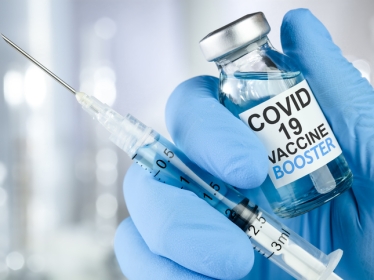World Hepatitis Day: Hepatitis in Pregnant Women
Hepatitis is an infection that causes inflammation of the liver. This infection can be transmitted from mother to baby if the patient is an expectant mother.
While the infection is usually harmless to your unborn baby and has little effect on your pregnancy, it is important to have the condition managed during your pregnancy to reduce the risk of transmission to your baby and the risk of any long-term liver disease for both you and your baby.
In conjunction with World Hepatitis Day, our Gastroenterologist of Nobel Gastroenterology Centre@ Gleneagles (a member of Healthway Medical), Dr Wang Yu Tien, answers some of the commonly asked questions of Hepatitis in Pregnant Women in the video below.
Transcript
0:06 | Hello! I'm Dr Wang Yu Tien, Gastroenterologist at Nobel Gastroenterology Centre. |
Which Hepatitis is Common In Pregnancy?
0:13 | So, both hepatitis B and C are the most common viral hepatitis worldwide. In Singapore, Hepatitis B is more common. About 3% of our population have Hepatitis B and both Hepatits B and C can be transmitted from mother to baby. So it is recommended that expecting mothers be screened for Hepatitis B and C. |
I Am An Expecting Mother; Can I Get Vaccinated Against Hepatitis? Is It Safe For My Baby?
0:39 | Yes, Hepatitis B vaccination is safe for mother and baby. For patients who are already infected by Hepatitis B, there are also safe treatment for Hepatitis B during pregnancy. However, there is no Hepatitis C vaccinated. |
What Are The Symptoms of Hepatitis During Pregnancy?
0:56 | Chronic viral Hepatitis carriers may have no symptoms. However, if they are having active inflammation, they may experience lethargy, nausea and loss of appetite. In more severe cases, they may have jaundice meaning yellowing on the eyes or skin, as well as abdominal discomfort. |
I Am Currently Pregnant, and I Have Hepatitis B. What Should I Do To Protect My Baby?
1:16 | Several things can be done to reduce the risk of transmission. The first thing you should do is to inform your gynaecologist. For patients who are already infected with high viral load, we recommend treatment with Hepatitis B medications to reduce this viral load. This can reduce the risk of transmission from mother to child. After delivery, the child should also be given antibody as well as vaccination to reduce the risk of transmission. |
In Conclusion
1:41 | So in conclusion, both Hepatitis B and C are common infections that can be transmitted from mother to baby. You should inform your doctor so that the necessary steps can be taken to reduce this risk. |




